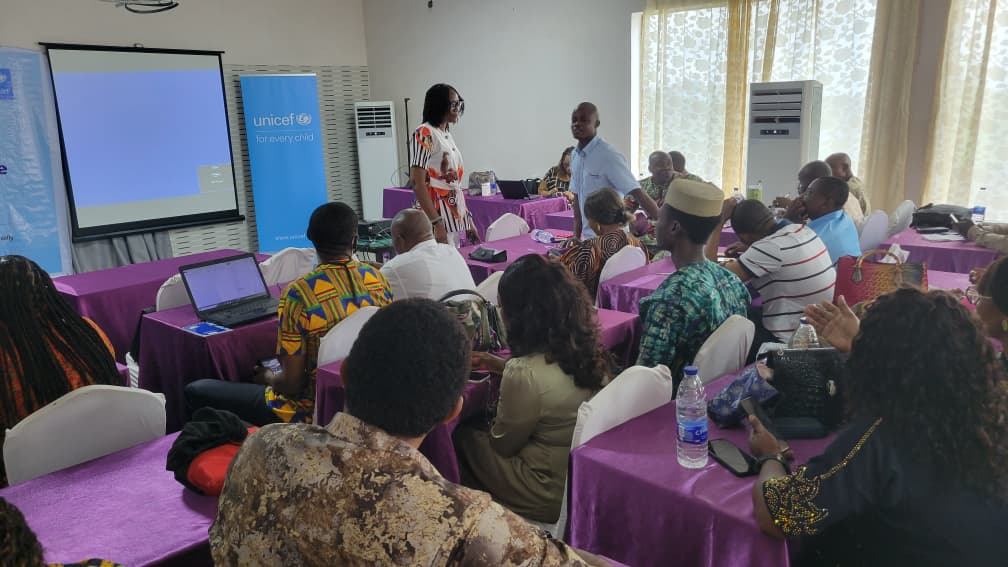The Olori of Araromi-Aperin in Ona-Ara Local Government Area of Oyo State, Olori Rebecca Obisesan, has narrated how firm traditional leadership and community mobilisation helped end open defecation in the community, even as UNICEF warned that most Nigerian states lack proper urban sanitation strategy.
Speaking during a-two day media dialogue on accelerating actions to improve urban Water, Sanitation and Hygiene (WASH) in Nigeria, Olori Obisesan said the community achieved open defecation-free status in 2021 after the state Ministry of Health sensitised residents and the palace enforced compliance.
“Before the campaign, we were doing ‘short-put’ in the bush,” she recounted. “Many houses did not have toilets. It was only the palace that had about 22 toilets.”
The queen, wife of Oba Mudashiru Musa Obisesan, the Alararo of Araromi-Aperin, said the monarch issued a clear instruction that every household must build a toilet.
“Kabiyesi ordered that every house must have a toilet. That was how things changed,” she said.
“There was no disease outbreak before the intervention, but the whole community used to smell because people were dumping faeces everywhere.”
She added that access to water was not a challenge in the community, explaining that residents rely on three functional boreholes apart from those in the palace.
However, she revealed a gap still exists in public sanitation.
“There is no toilet in the market. They use the mosque toilet,” she said in Yoruba, calling on government to build public toilets in trading centres.
… UNICEF: Nigeria Lacks Proper Urban WASH Plan
Meanwhile, UNICEF has raised concerns that most state governments lack strategic planning and regulatory frameworks for urban sanitation, making communities vulnerable to disease outbreaks and environmental degradation.
UNICEF WASH Specialist for Lagos Field Office, Mr. Monday Johnson, said poor urban sanitation planning remains one of Nigeria’s biggest public-health threats.
“Most governments in Nigeria do not have a specific strategy that can address urban WASH in all ramifications,” he said.
“If there is no defined policy, no identified structures and no coordination or regulatory mechanisms, we will not be able to address sanitation challenges as a state.”
Johnson stressed that both slums and highbrow areas must be captured in sanitation planning, noting that Nigeria’s rapidly expanding urban population makes urgent policy action critical.
….Private Sector Urged To Invest In Sanitation
He also called on private investors to tap into opportunities in the sanitation value chain.
“Government cannot do everything. There are huge funds available in sanitation,” he said.
“Sanitation has three parts — capture, transport and disposal or reuse — and all are income-generating avenues. Many private sectors do not know there are funds in sanitation.”
He cited states with high open defecation rates as untapped markets for construction and waste-disposal services.
…Build toilets in markets, filling stations — UNICEF
Johnson further urged government to enforce laws mandating public toilets in filling stations, markets and other crowded spaces.
“Ensure all filling stations have clean and accessible toilets. The same goes for markets,” he said.
“Make these facilities available everywhere. They can even generate income. These things are not happening, and that is why we still have open defecation.”
He added that poor sanitation fuels poverty.
“When people contract diseases due to lack of hygiene, they cannot attend to their businesses.”
… States without WASH policy lagging behind
Johnson advised states yet to develop sanitation policies and open defecation roadmaps to act immediately.
“The starting point is to develop the open defecation roadmap,” he said. “Once that is in place, they can identify their capacity needs, funding strategies and timeline.”
He emphasised that external funders look for clear government policy before supporting sanitation projects.
… Media urged to push WASH agenda
UNICEF Communication Officer, Mrs Blessing Ejiofor, restated that access to water and sanitation is a fundamental human right.
Officials from Oyo State WASH agencies urged journalists to continue advocating public hygiene reforms.
“The media has a powerful role in driving behavioural change,” said Mrs Adeola Adewole of the Ministry of Information. “We must keep speaking until WASH becomes a priority everywhere.”
Do you want to share a story with us? Do you want to advertise with us? Do you need publicity for a product, service, or event? Contact us on WhatsApp +2348183319097 Email: platformtimes@gmail.com
We are committed to impactful investigative journalism for human interest and social justice. Your donation will help us tell more stories. Kindly donate any amount HERE




